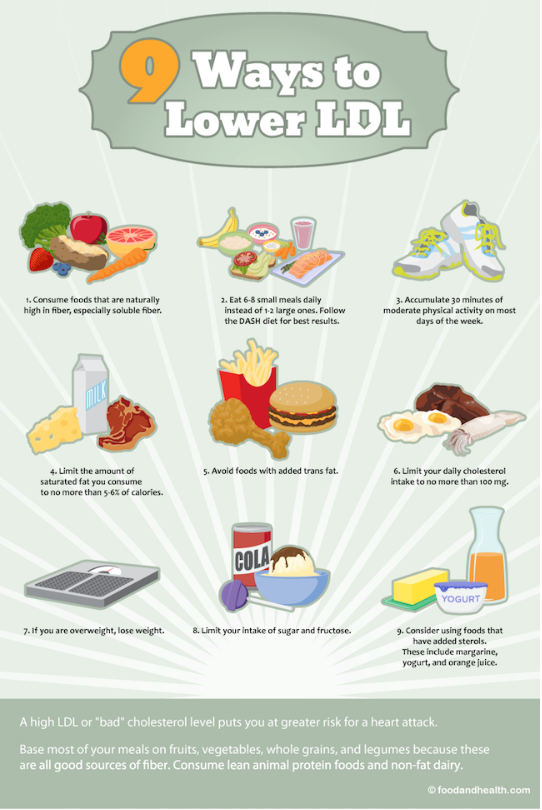Discover the surprising natural remedies and lifestyle changes that can effectively lower cholesterol levels without medication or drastic measures.
Table of Contents
- What is Cholesterol?
- Why is High Cholesterol Bad?
- Natural Ways to Lower Cholesterol
- The Power of Diet
- Exercise and Cholesterol
- Vitamins and Supplements
- The Role of Weight Management
- A Healthy Lifestyle for a Healthy Heart
- Remembering to Check with Your Doctor
- Getting Support and Information
- Conclusion
- FAQs
Welcome, young reader! Today, we are going to talk about high cholesterol and how you can treat it naturally. Now, you might be wondering, what exactly is high cholesterol? And why should we focus on natural treatments? Let’s find out together!
High cholesterol is like having too much of a certain type of fat in your blood. This fat is needed by your body, but too much of it can cause problems. When we talk about treating high cholesterol naturally, we mean using things like healthy foods, exercise, and supplements to help bring those fat levels back to normal without needing medicines that might have side effects.
So, are you ready to learn more about how you can take care of your cholesterol levels and keep your heart healthy in a natural way? Let’s dive in and discover together!
What is Cholesterol?
Cholesterol is a waxy, fat-like substance found in your blood. It is an essential component that your body needs to build healthy cells. However, having too much cholesterol can be harmful to your health.
The Two Types of Cholesterol
There are two main types of cholesterol: LDL (low-density lipoprotein) and HDL (high-density lipoprotein). LDL cholesterol is often referred to as the ‘bad’ cholesterol because it can build up on the walls of your arteries, leading to atherosclerosis, a condition that can increase your risk of heart disease and stroke. On the other hand, HDL cholesterol is known as the ‘good’ cholesterol as it helps remove LDL cholesterol from your arteries, lowering your risk of heart disease.
Why is High Cholesterol Bad?
High cholesterol, particularly the increase in LDL cholesterol, can be harmful to your body. LDL cholesterol is often referred to as the “bad” cholesterol because it can create plaque build-up in your arteries. Imagine your arteries as the roads in your body that allow blood to travel to all your organs and tissues. When there’s too much LDL cholesterol in your blood, it can stick to the walls of these “roads” and form thick, hard deposits called plaques.
As these plaques grow, they can narrow and stiffen your arteries, making it harder for blood to flow through. This condition is known as atherosclerosis and can lead to serious health issues. If a plaque breaks open, it can create a blood clot that blocks blood flow to your heart or brain. This blockage can cause a heart attack or stroke, which are life-threatening conditions.
Moreover, if your blood vessels become too narrow due to plaque build-up, your heart has to work harder to pump blood through, increasing the risk of high blood pressure and other heart-related complications. Therefore, managing your cholesterol levels is crucial to maintaining good heart health and overall well-being.
Natural Ways to Lower Cholesterol
Omega 3 is a type of healthy fat that can be found in certain foods like fish, nuts, and seeds. These fats are known to be good for your heart and can help lower cholesterol levels. By including more omega 3 in your diet, you can support your heart health and keep your cholesterol in check.

Image courtesy of www.pinterest.ca via Google Images
Discovering Apple Cider Vinegar Benefits
Apple cider vinegar has been praised for its many health benefits, and one of them includes helping to manage cholesterol levels. Incorporating apple cider vinegar into your daily routine, whether by adding it to salads or mixing it with water, can have a positive impact on your cholesterol.
Magnesium for Heart Health
Magnesium is a mineral that plays a crucial role in maintaining a healthy heart. It can help relax blood vessels and improve blood flow, which in turn can aid in managing cholesterol levels. Making sure you have enough magnesium in your diet through foods like leafy green vegetables, nuts, and whole grains can be beneficial for your heart health.
The Power of Diet
When it comes to managing high cholesterol levels, one of the most powerful tools at your disposal is your diet. What you put into your body can have a significant impact on your cholesterol levels and overall heart health. By making smart food choices, you can work towards maintaining a healthy cholesterol level naturally.
Foods to Eat
Some foods have been shown to help lower cholesterol levels and promote heart health. These include:
- Fatty fish like salmon, mackerel, and sardines, which are rich in omega-3 fatty acids known for their heart-healthy benefits.
- Whole grains like oatmeal, barley, and brown rice, which are high in soluble fiber that can help reduce LDL (bad) cholesterol.
- Fruits and vegetables, especially those rich in antioxidants like berries, citrus fruits, and leafy greens.
- Nuts, such as almonds, walnuts, and cashews, which contain healthy fats that can improve cholesterol levels.
Foods to Avoid
On the flip side, there are certain foods that can negatively impact your cholesterol levels and should be limited in your diet. These include:
- Trans fats found in processed and fried foods, as they can raise LDL cholesterol and lower HDL cholesterol.
- Saturated fats found in red meat, full-fat dairy products, and some tropical oils like coconut and palm oil.
- Sugar and refined carbohydrates, which can contribute to weight gain and increase triglyceride levels.
- Excessive alcohol consumption, which can lead to high triglycerides and raise blood pressure.
By being mindful of your food choices and incorporating more heart-healthy options into your diet while cutting back on foods high in unhealthy fats and sugars, you can make a positive impact on your cholesterol levels and overall heart health.
Exercise and Cholesterol
When it comes to taking care of your heart health and managing your cholesterol levels, exercise plays a crucial role. Let’s explore why physical activity is so important and how it can affect your cholesterol.

Image courtesy of www.pinterest.com via Google Images
The Benefits of Exercise
Exercise is like a superhero for your heart. When you move your body, whether it’s running, swimming, biking, or even playing outside, you’re strengthening your heart and keeping it healthy. Regular physical activity can also help raise your good cholesterol (HDL) levels while lowering your bad cholesterol (LDL) levels. This is great news for your heart!
How Exercise Helps Lower Cholesterol
When you’re active, your body uses up extra cholesterol for energy. This means that your bad cholesterol levels are reduced, which is exactly what we want. Not only does exercise help manage your cholesterol, but it also keeps your heart strong and pumping smoothly. Plus, it’s a fun way to stay active and have some playtime!
Vitamins and Supplements
When it comes to managing high cholesterol levels naturally, vitamins and supplements can play an important role in supporting heart health. Let’s explore how certain vitamins and supplements can assist with cholesterol management.
Omega 3 Supplements
Omega 3 fatty acids are essential nutrients that are known for their heart-healthy benefits, including helping to lower cholesterol levels. If you don’t consume enough omega 3-rich foods like fatty fish, walnuts, or flaxseeds, taking omega 3 supplements can be a good way to ensure you’re getting an adequate amount in your diet.
Magnesium Supplements
Magnesium is a mineral that plays a vital role in various bodily functions, including heart health. Studies have shown that magnesium can help lower LDL (bad) cholesterol levels and improve overall heart health. If you have a magnesium deficiency or don’t get enough magnesium from your diet, your doctor may recommend taking magnesium supplements to support your cholesterol management.
Vitamin D and Cholesterol
Vitamin D is important for overall health, including heart health. A deficiency in vitamin D has been linked to an increased risk of high cholesterol and heart disease. It is essential to get enough sunlight exposure and consume vitamin D-rich foods like fatty fish, fortified dairy products, and mushrooms. In cases where a vitamin D deficiency is present, your healthcare provider might suggest vitamin D supplements to help maintain optimal levels and support cholesterol management.
The Role of Weight Management
One crucial aspect that plays a significant role in managing cholesterol levels is weight management. Maintaining a healthy weight is essential for keeping your cholesterol in check and promoting overall well-being.

Image courtesy of www.cerascreen.co.uk via Google Images
How Weight Influences Cholesterol
When you carry excess weight, especially around your midsection, it can lead to an increase in LDL cholesterol levels, commonly known as the ‘bad’ cholesterol. This can put you at a higher risk of heart disease and other health issues.
By shedding extra pounds through a combination of healthy eating and regular exercise, you can lower your LDL cholesterol levels and boost your HDL cholesterol, which is the ‘good’ kind.
The Importance of Lifestyle Changes
Adopting healthier lifestyle habits, such as choosing nutritious foods, staying active, and managing stress, can help you achieve and maintain a healthy weight. These changes not only benefit your cholesterol levels but also positively impact your overall health and well-being.
Remember, it’s not just about the number on the scale but about making sustainable choices that support your heart health and cholesterol management in the long run.
A Healthy Lifestyle for a Healthy Heart
Living a healthy life can lead to a healthy heart. By making small changes in your everyday routine, you can keep your heart strong and happy!
| Treatment Method | Description | Effectiveness |
|---|---|---|
| Dietary Changes | Following a heart-healthy diet low in saturated fats and cholesterol. | Effective in reducing LDL cholesterol levels. |
| Regular Exercise | Engaging in physical activity for at least 30 minutes most days of the week. | Effective in raising HDL cholesterol levels and lowering overall cholesterol. |
| Weight Management | Maintaining a healthy weight through diet and exercise. | Helps improve cholesterol levels and reduce risk of heart disease. |
| Reduce Stress | Practicing relaxation techniques or mindfulness to manage stress levels. | Can help lower cholesterol and reduce risk of heart problems. |
| Herbal Supplements | Using supplements like garlic, plant sterols, and red yeast rice to lower cholesterol. | May have some cholesterol-lowering effects, but effectiveness varies. |
Eating Right for Your Heart
What you eat plays a big role in keeping your heart healthy. Foods like fruits, vegetables, whole grains, and lean proteins are great for lowering cholesterol levels. They can help reduce the ‘bad’ cholesterol that may be harmful to your heart.
Regular Exercise for a Strong Heart
Exercise is like giving your heart a workout. It helps keep your heart strong and healthy. Running, swimming, or playing sports are all fun ways to get your heart pumping and lower cholesterol levels.
Getting Enough Sleep and Managing Stress
Sleep and stress can affect your heart health too. Making sure you get enough sleep each night and finding ways to relax and unwind can help keep your heart in top shape. Stress can raise cholesterol levels, so it’s important to find healthy ways to cope with it.
Limiting Bad Habits for a Healthy Heart
Some habits like smoking and drinking too much alcohol can harm your heart. By quitting smoking and cutting back on alcohol, you can help protect your heart from damage and keep cholesterol levels in check.
By adopting a healthy lifestyle with nutritious foods, regular exercise, good sleep, and stress management, you can promote a healthy heart and keep your cholesterol levels in check. Remember, a healthy heart leads to a happy life!
Remembering to Check with Your Doctor
It’s essential to remember that while natural methods can be beneficial for managing high cholesterol, it’s crucial to consult with your doctor before making any significant changes. Your doctor knows your health history best and can provide personalized guidance based on your specific needs.

Image courtesy of news.nutritioneducationstore.com via Google Images
Why It’s Important to Consult with Your Doctor
Your doctor can help determine the best course of action for managing your cholesterol levels. They may recommend lifestyle changes, prescribe medication if necessary, or suggest additional tests to further understand your condition. Consulting with your doctor ensures that you are taking the right steps for your unique health situation.
Monitoring Progress and Adjustments
Regular check-ups with your doctor allow for monitoring your progress in managing high cholesterol. Your doctor can track changes in your cholesterol levels, discuss any concerns or challenges you may have encountered, and make adjustments to your treatment plan as needed.
Avoiding Potential Risks
By consulting with your doctor, you can avoid potential risks associated with managing high cholesterol on your own. Your doctor can provide valuable insight into the most effective and safe approaches, minimizing the risk of complications and ensuring you stay on the right path towards improved heart health.
Getting Support and Information
When it comes to managing your cholesterol levels naturally, it’s essential to have a support system in place. This support can come from various sources, such as family, friends, or even online communities dedicated to healthy living. Sharing your journey with others can provide motivation, accountability, and valuable tips for success.
Seeking Information
Having reliable information is crucial in making informed decisions about your health. Look for reputable sources such as trusted health websites, books written by healthcare professionals, or consult with your doctor or a nutritionist. These sources can help you better understand high cholesterol, natural treatment options, and personalized recommendations based on your specific health needs.
Joining Wellness Programs
Consider joining wellness programs or support groups focused on heart health and cholesterol management. These programs often provide resources, guidance, and a sense of community with like-minded individuals pursuing similar health goals. You may also benefit from expert-led workshops, exercise classes, and educational seminars that can enhance your knowledge and skills in maintaining healthy cholesterol levels naturally.
By seeking support from various sources and staying informed through credible information sources, you can feel empowered and equipped to effectively manage your cholesterol levels naturally.
Conclusion
In conclusion, managing high cholesterol naturally is not only possible but also crucial for maintaining overall heart health and well-being. By incorporating simple lifestyle changes such as boosting omega 3 intake, utilizing apple cider vinegar benefits, ensuring adequate magnesium levels, and addressing vitamin D deficiency, individuals can effectively lower their cholesterol levels without relying on medication.

Image courtesy of www.pinterest.com via Google Images
Remember, the power of a healthy diet, regular exercise, weight management, and the use of appropriate supplements can significantly impact cholesterol levels and reduce the risks associated with high cholesterol, particularly high LDL cholesterol.
By taking a holistic approach to heart health and embracing a healthy lifestyle, individuals can proactively manage their cholesterol levels and reduce the chances of heart-related complications. It’s essential to consult with a healthcare provider before making any significant changes to ensure a personalized and safe approach to managing high cholesterol naturally.
FAQs
How can I reduce high cholesterol levels naturally?
To lower high cholesterol levels naturally, you can make dietary changes by incorporating foods rich in omega 3 fatty acids like fish, flaxseeds, and walnuts. Additionally, apple cider vinegar has been shown to have benefits for cholesterol management. Ensuring you have enough magnesium in your diet can also help. Lastly, maintaining adequate levels of vitamin D is essential for overall health and may impact cholesterol levels.
What are the benefits of omega 3 in reducing cholesterol?
Omega 3 fatty acids are known to lower triglycerides, reduce blood clotting, decrease inflammation, and decrease overall risk of heart disease. Including omega 3-rich foods in your diet can help in reducing high cholesterol levels naturally.
How does apple cider vinegar contribute to managing cholesterol?
Apple cider vinegar contains acetic acid, which has been shown to lower cholesterol and triglyceride levels. Consuming apple cider vinegar as a part of your daily routine can aid in managing your cholesterol levels naturally.
When should I consider taking magnesium supplements for heart health?
Magnesium is an essential mineral that plays a crucial role in heart health. If you have a magnesium deficiency or are not getting enough through your diet, talking to your doctor about magnesium supplements may be beneficial for managing your cholesterol levels and overall heart health.
What happens if I have a vitamin D deficiency in relation to cholesterol levels?
Vitamin D deficiency has been linked to higher cholesterol levels and an increased risk of heart disease. Ensuring that you have adequate vitamin D through sunlight exposure, diet, or supplements can help in maintaining healthy cholesterol levels.





